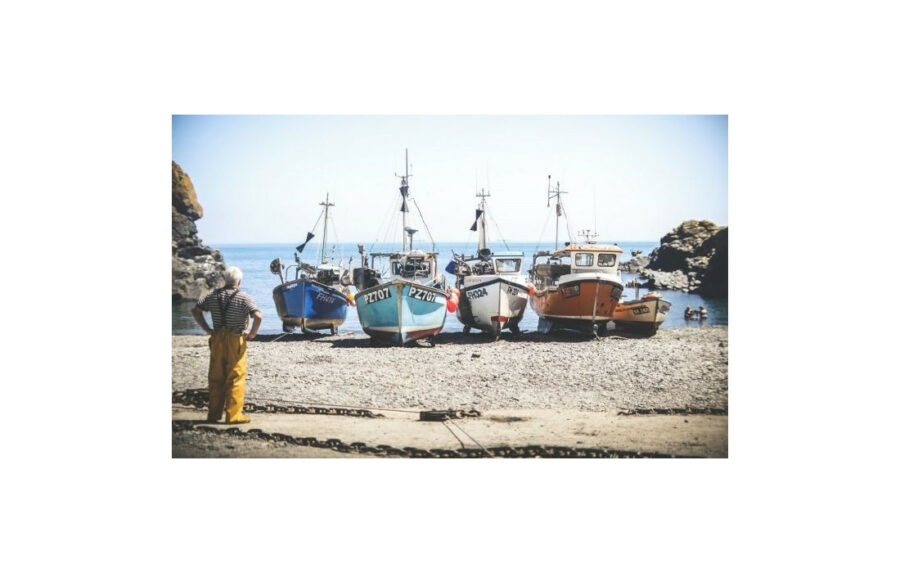Industry blasts report proposing NTZ network
Green ‘zealots’ ignore fishermen’s livelihoods
The English fishing industry has launched a lacerating attack on proposals to introduce highly protected marine areas (HPMAs) in England, in which all fishing and other activities would be banned, and on the report which recommends the areas, reports Tim Oliver.
The proposals were spelled out in the recently published Benyon report (Fishing News, 18 June, ‘No-fishing zones planned’), and came under fire at a recent teleconference organised by DEFRA to discuss the report.

Small-scale inshore boats would be particularly hard-hit by displacement caused by NTZs. (Photo: Nina Constable Media)
In a report on the meeting, the NFFO says that it revealed the strength of feeling across the fishing industry against an attempt to shoehorn ‘no-take zones’ (NTZs) into the established process for designating and managing marine protected areas.
There was deep concern not only at the content of the report but also at the way it came about.
Questions were raised about the independence of the chairman, former fisheries minister Richard Benyon, who was a leading advocate of the EU landing obligation, the balance within the panel, and why organisations representing the fishing industry had been excluded.
The meeting also commented on confusion at the heart of the report about what HPMAs would be for. If they were to provide a scientific control area to assess the effectiveness of MPAs, the industry said no rigorous case had been made to justify this that would stand up to scientific scrutiny.
If they were being pushed as part of a wider campaign for NTZs, they were a back-door way of managing fisheries, or even a project for ‘rewilding’ the seas.
The NFFO said that the meeting confirmed that there is a lot for the fishing industry to fear in this report – especially for small-scale inshore fisheries where vessels’ operating ranges are limited and impacts on livelihoods would be severe.
Other comments at the meeting were that:
- Environmental ‘zealots’ seem to be in the driving seat, and there is an unconcerned attitude throughout the report towards real people and their lives and livelihoods
- If the government accepts the report recommendations, it would drive a coach and horses through any idea of co-management, as the scene would be set for endless local and national conflicts as fishermen are displaced from their customary fishing grounds
- The report talks about an ‘evidence-based approach and dialogue with those impacted’, but it makes sure to include and emphasise the precautionary approach override, and to assume that whatever legislative route is chosen, NTZs will be bulldozed in.
The NFFO said that the industry had been engaged with the government for over a decade in setting up and designating MPAs and deciding management measures, and ‘a parallel process’ was now being set up, which demonstrated bad faith. Fishermen who had been involved in the Lyme Bay MPA felt that they had now been ‘duped and betrayed’.
It also noted that it was very likely that if any NTZs were set up, they would be expanded in the future.
The NFFO said it was disturbing that the Benyon report had been ‘helicoptered in after pressure from the powerful and well-connected environmental lobby’.
Above all, it said, the report glossed over the displacement of fishing activity, which would create havoc for fishermen who were ejected from their customary grounds. There would be ‘knock-on effects and unintended consequences’ in other fisheries. “A truly independent and balanced group might have explored a bit deeper into what displacement would mean. Instead that task has been left to government,” said the NFFO.
During the meeting, the federation made clear that it was not, and never has been, against MPAs and protecting vulnerable marine habitats, and that the industry has a responsibility to keep its ecological footprint as small as possible.
It has been jointly working with government on the best way to protect the environment, but said that if the recommendations of the report were accepted and implemented, ‘we will be on course for years of conflict’.
Summing up, the NFFO said there was nothing independent about the ‘independent’ review.
“From the outset, it has been driven by politically well-connected, socially privileged environmental zealots with an agenda that bulldozes aside the fears and legitimate concerns of those who depend on fishing for their livelihood.
“One would have to be extremely naïve to believe that it is anything other than a Trojan horse for large-scale NTZs.
“The weighting of the panel, its terms of reference, the derisory access given to the views of the fishing industry – all give reason for alarm across the fishing industry.
“The Benyon report has managed to unite the fishing industry in opposition to a badly timed, ill-judged initiative of dubious provenance and confused purpose.”
The federation paid tribute to Nathan de Rozarieux’s efforts on the panel to bring some sense of rigour, balance and proportion to the report.
The full report can be read on the NFFO website at: nffo.org.uk
‘Not policy’ says Prentis
Fisheries minister Victoria Prentis, who participated in part of the teleconference call, emphasised that the Benyon report was not government policy, and said that a process was underway to develop a government response to the report. That would be published in due course, and would inform future policy.
In the meantime, DEFRA would be engaging with the fishing industry to understand its concerns and perspectives.








